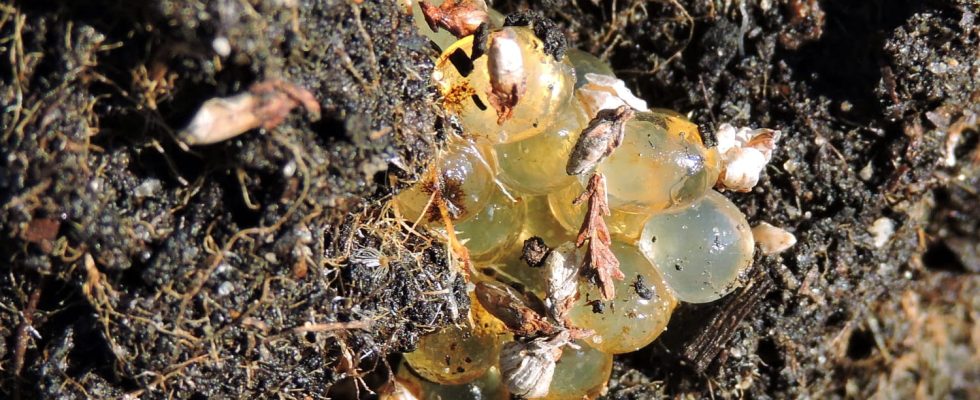This small predator lays its eggs in large numbers in the fall.
Gardening enthusiasts know that fall not only brings vibrant colors to the leaves, but also a formidable threat: slugs. These slimy little creatures feast on fresh leaves and can quickly wreak havoc on a well-tended garden. With slug laying season beginning in late October, it is now crucial to protect our precious plants from the relentless attacks of these invaders.
Autumn, with its ground covered in dead leaves, provides an ideal hunting ground for slugs. They hide among the leaves and prepare to sow their eggs, giving birth to a new generation of slugs, hungry predators the following spring. To minimize the threat of slugs, it is essential to keep a garden clean and free of dead leaves, which provide a perfect shelter for these undesirables.
Some gardeners have discovered a surprising but incredibly effective tip for keeping slugs away: WD-40, this famous penetrating oil for locks well known to professionals and found in many homes. This product is also available in DIY stores and in many supermarkets. Sandra Cook, manager of a Facebook page dedicated to gardening, shares her experience on Gardening UK. She says spraying the outside of flower pots with WD-40 creates an impenetrable barrier for slugs and snails. “Spraying WD-40 on the outside of pots or planters will make them too slippery for slugs to climb,” confirms one user.
It is important to note that WD-40 should not be sprayed directly on plants or soil, but only on the flower pots you wish to protect. This method allows you to protect your plants from attacks by slugs and snails, while using a product that most people already have at home. This is a good way to anticipate and counter the arrival of slugs because the invasion can be rapid, very spectacular and devastating. This insidious enemy quickly infiltrates and threatens our precious plants. These slimy creatures feast on fresh leaves, causing particularly fearsome havoc in spring and fall.
